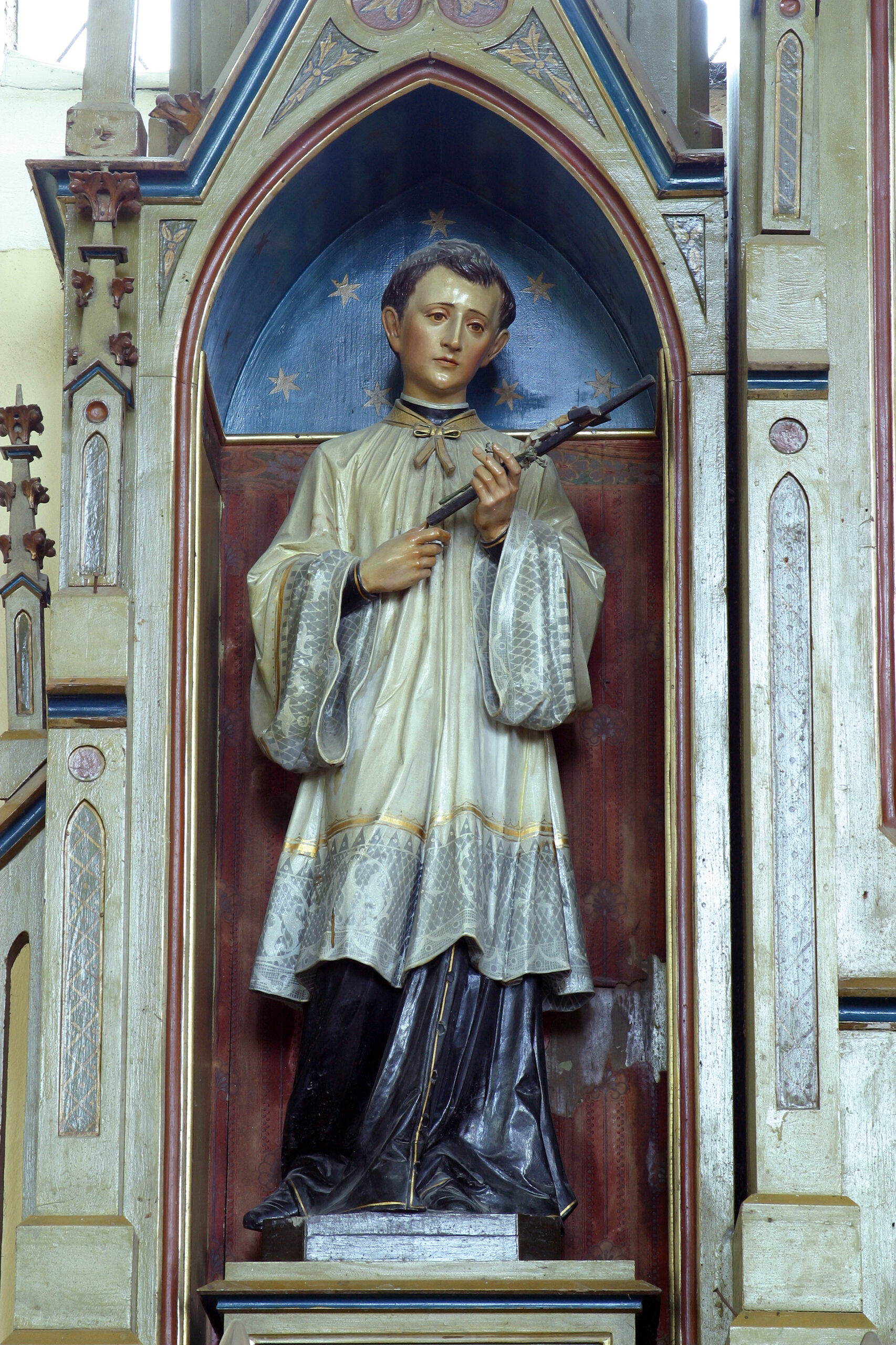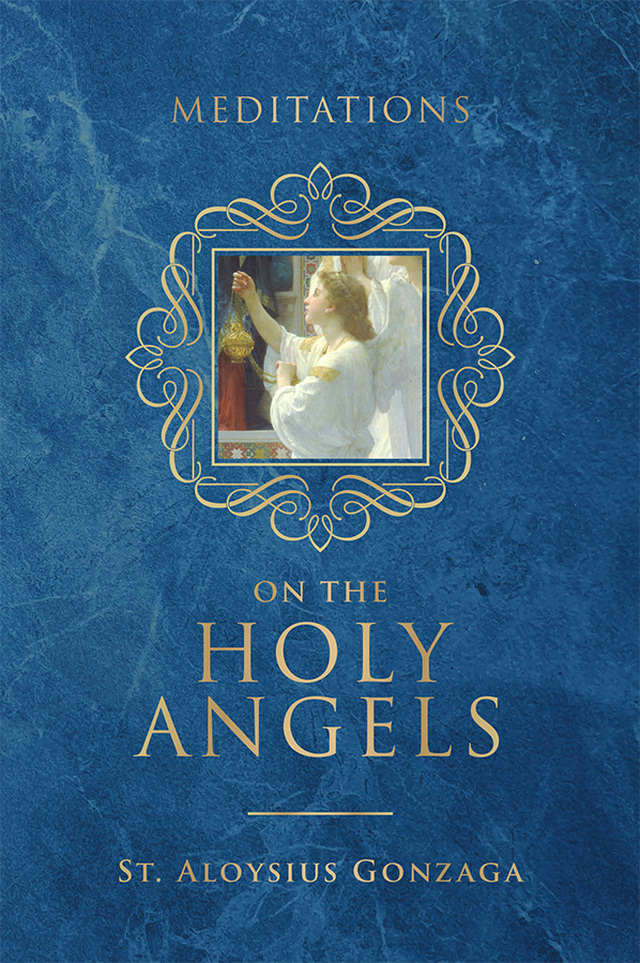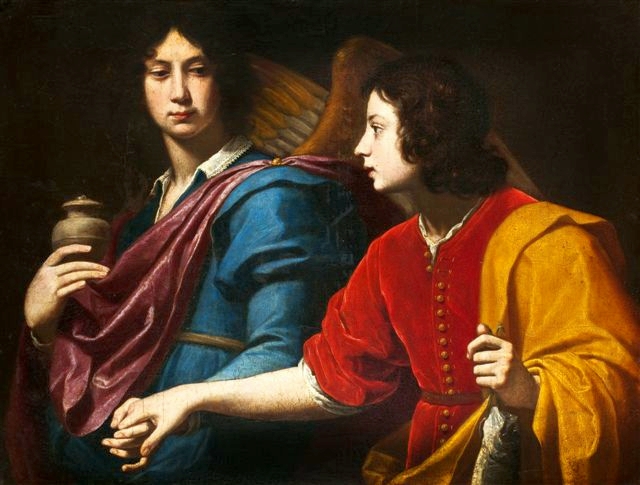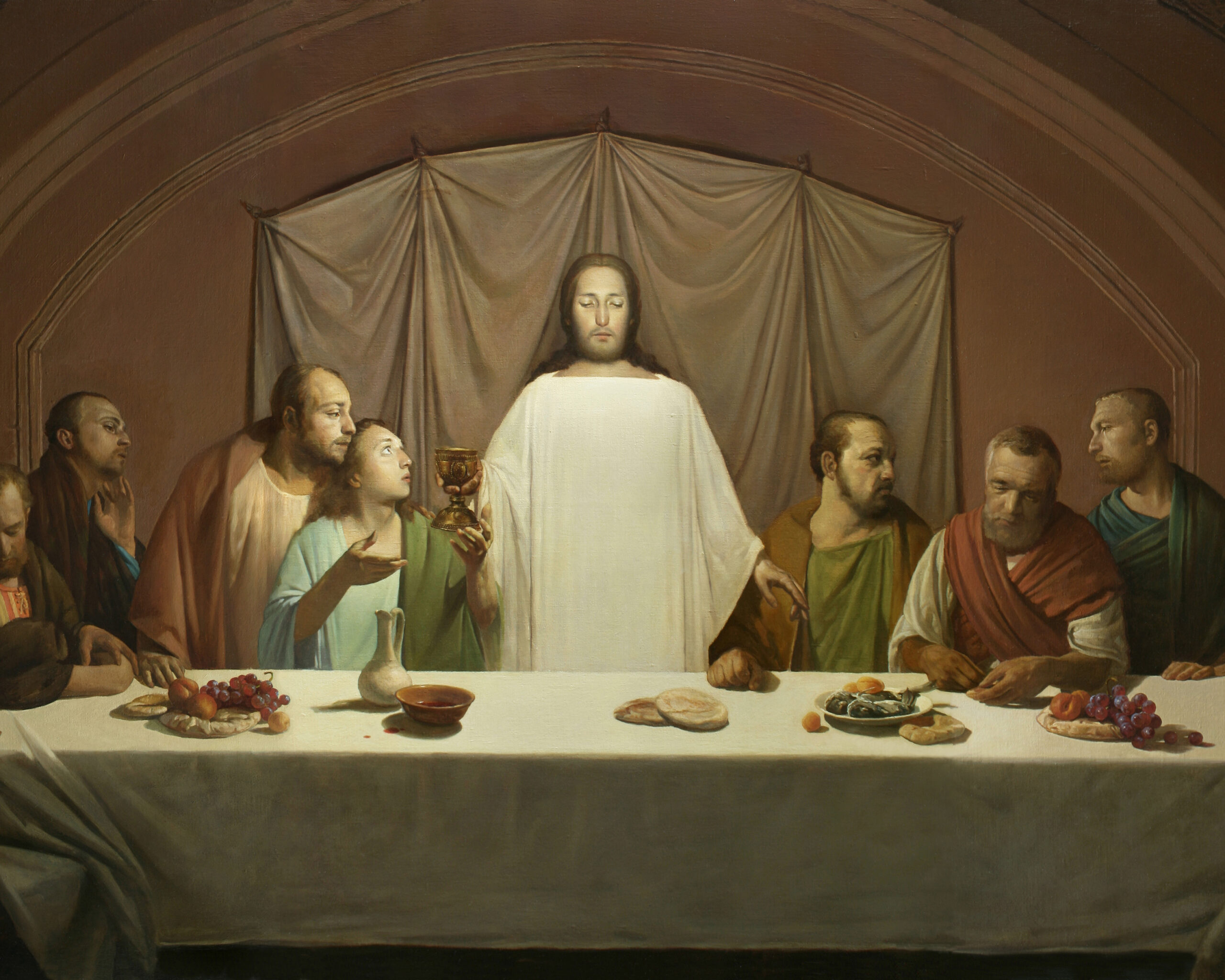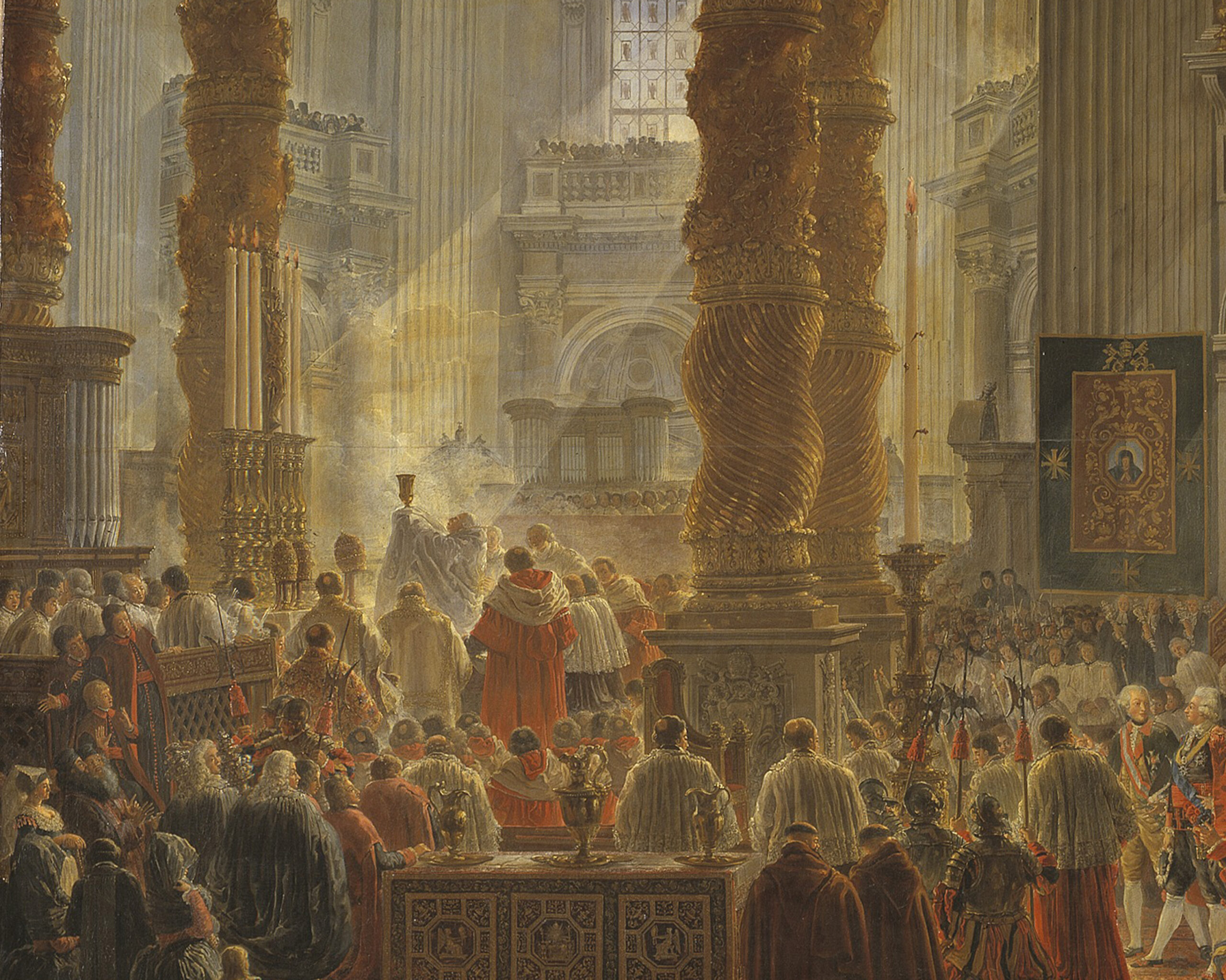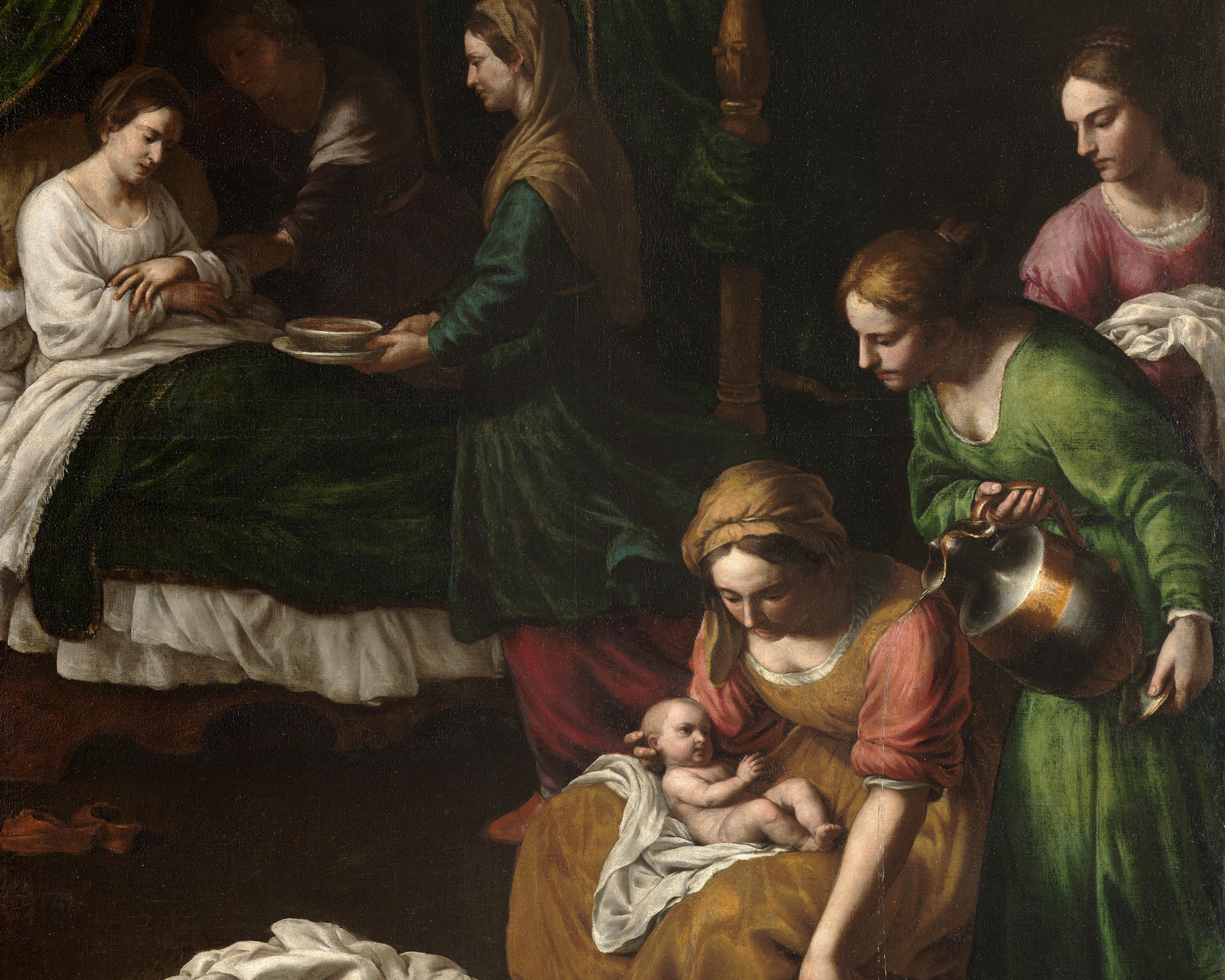There are few saints who wrote on the angels with such purity and devotion as Saint Aloysius Gonzaga. Meditations on the Holy Angels impels readers to sublime love for our guardian angels, the archangels, and all the hosts of heaven. This excerpt includes three meditations that will instill childlike faith in each reader through precious innocence, the Eucharist, and Our Lady.
The Preservation of Innocence
“Who shall ascend the mountain of the Lord, and who shall dwell in his holy place? The one with innocent hands and a clean heart.”
This verse from the Psalm teaches us that those who cultivate purity and integrity of body and mind shall ascend to the most intimate union with God, the most chaste Spouse of the soul. Such persons shall stand unshakeable in virtue and grace and shall never be moved from their holy commitment to purity by any impulse of the flesh or of the devil. These are the ones of whom it is written, “they shall see God” and “will be like the angels of the Lord in heaven,” where “they shall follow the Lamb.” There, adorned with the laurels of untarnished virginity, “they shall shine like the stars for all eternity.” O, how marvelous and glorious is the reward of innocence!
But we hold this treasure—the precious treasure of holy innocence—in fragile vessels of clay. And, in proportion to the great fragility of the vessel, so must our solicitude for the protection and preservation of the treasure of innocence be the more diligent and unceasing.
O most chaste Jesus, radiant splendor and mirror of the eternal Light! Grant that I may always preserve my body in chastity and may please you with a pure heart.
Saint Aloysius guarded and preserved the precious treasure of holy innocence carefully and thoroughly. Hence, he came to be known as “an angel in human flesh,” “a prince without a body,” and an “angelic youth.” He dreaded all forms of sin and even the slightest shadow of sin and vice, avoiding these like fearsome pitfalls. He was very strict in reprimanding and correcting himself, even for the slightest fault, with heartfelt tears and penitence. Thus it was his earnest endeavor to be ready to appear before the heavenly throne of judgment at any moment without the slightest trepidation or carrying the burden of any unrepented or unconfessed guilt.
At the age of nine, he pledged his perpetual virginity to God. This perfect virginity he bore with him as an unstained baptismal robe until he arrived at his mortal tomb. As the Sacred Congregation in Rome testified, when he was added to the canon of saints, “Never once did he suffer from an impure thought in his mind, nor was he ever tempted by impure urgings of the flesh.”
O Saint Aloysius, angelic youth—draw us after yourself so that we may run in the path of your fragrant sanctity until we arrive at last in the kingdom of paradise!
Devotion To The Eucharist
“The Lord is merciful, and leaves a memorial of his wondrous deeds. He is compassionate, and gives food to those who fear him.”
What is this food referred to in the verse above, which the Lord gives to those who fear Him? It is nothing other than the flesh assumed from the Virgin, the Bread of Angels, His only-begotten Son. How stupendous and incredible is this feast, which strikes even the minds of the angels with awe and wonder! To all those fearing Him is this holy food given, but this does not mean that we should have a servile or cowardly fear. For such a fear would prevent one from receiving the Blessed Sacrament frequently. But rather, the “fear” spoken of is a filial reverence and a fitting modesty and humility.
For the Lord sincerely desires the sacrament of His Body and Blood to be consumed by us, such as when He says, “Come to me, all ye who labor and are heavily burdened, and I shall refresh you.” Yet He also warns us against unworthy reception of the Eucharist in the Scripture, “Let each person examine themselves, and only then eat of this bread. For the one who receives it unworthily will be condemned through the Body and Blood of Christ.” Woe to the one who enters the wedding feast without wearing the appropriate garment!
Lord, I am not worthy that you should enter under my roof, but only say the word, and my soul shall be healed! How wonderfully prepared and splendidly clothed in the fitting raiment of virtue and reverence did Saint Aloysius approach the table of the divine wedding feast! It was Saint Charles Borromeo himself who instructed the angelic youth in the proper way of receiving the Eucharist. He always took three days to prepare himself spiritually for the reception of the sacrament, and then would spend the same number of days afterwards in giving thanks to God. In the days of preparation, he would devote many hours to prayer and conversation with the Lord. For one day prior to receiving the Body and Blood of Christ, he would fast assiduously. When he did approach the Eucharistic table, it was with incredible modesty, reverence, fervor, and longing.
Nothing could be sweeter to him than to speak of, to read about, or to meditate upon this most holy Mystery. Nothing was more delightful to him than to be attentively present at the celebration of the Mass, in which the pure victim and holy sacrifice of the Lamb without blemish is offered as the price of our eternal redemption. And there was nothing he longed for more ardently than to gaze in loving adoration upon the Blessed Sacrament, in which all the radiant glory of the Divinity lies veiled under the appearances of mortal bread!
O most innocent seraph, blessed Aloysius—how earnestly I desire to consume in your company this wondrous and mystic Passover! Grant that my own heart may always burn with the same passionate fire as yours in loving Jesus Christ, truly present in the sacrament of the Holy Eucharist.
Love For The Virgin Mary
“God wills us to possess all His gifts through Mary!”
Truly, the Blessed Virgin is the channel through which all the gifts of celestial grace are poured out to us from the infinite ocean of divine goodness. If it is purity of heart we desire, it is Mary who shall bestow it upon us. If it is the blessing of good health, or success in one’s studies, or clarity in times of doubts, or strength to resist temptations—all of these God desires to give to us through Mary. And she is not able to hear our tears and cries without being moved to compassion by them. For she is truly the mother of mercy, and, although we are sinners, she embraces us in the arms of her maternal love. She is the clement, loving, and sweet Virgin who graciously turns unto us her eyes of mercy! And, after this exile of our earthly life, she will most surely show to us the blessed fruit of her womb, Jesus. For our part, all we must do is attempt to please her and her divine Son through integrity of heart and purity of body.
O most holy Virgin Queen, deign to accept my humble praise! Grant to me strength and fortitude wherewith to fight successfully against all my spiritual enemies and foes!
Saint Aloysius loved Mary as his spiritual mother with a most tender and filial affection. Indeed, his whole heart was taken up in her love whenever he thought of her. This included whenever he spoke of her with his peers, or saw a sacred image of her, or heard, read, or wrote her holy name, or happened to read some work of pious devotion concerning her. This was a very frequent experience for him and always brought to him an unspeakably sweet sensation of delight.
He was constant in his daily recitation of the Office of Our Lady once he had commenced this practice and never once omitted it, even when afflicted with serious illness. He would say this either at home at a small altar he had set up to the Blessed Virgin or at any Marian shrine or altar, and always with tears and sighs of devotion and love. Whenever he had some particular need for solace, guidance, or help, he would beseech the Mother of God in prayer. He would say an Ave, echoing the angel Gabriel’s greeting of Mary, with almost every step he took, and particularly when he was walking up stairs. It was his custom to recite silently various Marian litanies and rosaries in any unoccupied moment, and all feast days of Our Lady he observed with particular solemnity and reverence. He also made a diligent effort to emulate the virtues of the holy Virgin, especially her modesty, meekness, obedience, and innocence, and would frequently speak of these same virtues with passionate enthusiasm to his peers.
Oh, if only I could also be like that! Grant, O most holy Aloysius, that I may come to reflect something of the example of your piety, love, and constancy in my own devotions to the holy Mother of our glorious Savior.
ooo
This article is taken from a chapter in Meditations on the Holy Angels by St. Aloysius Gonzaga which is available from TAN Books.



